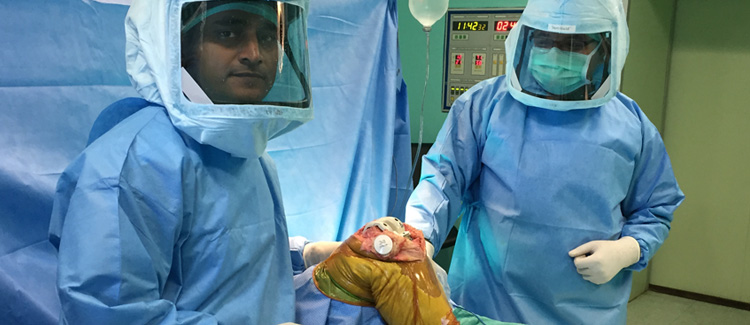Partial Knee Replacement

Partial Knee Replacement
If you’re searching for the best partial knee replacement surgeon in Delhi or East Delhi, it’s important to choose someone with both advanced skills and a patient-centered approach. Partial knee replacement surgery is a minimally invasive procedure that replaces only the damaged compartment of your knee, preserving healthy bone and tissue. This targeted approach helps reduce recovery time, minimize pain, and maintain more of your natural knee function compared to a full knee replacement.
As a leading partial knee replacement surgeon in Delhi, I emphasize thorough evaluation to determine if this surgery is the right option for you. Partial knee replacement is typically recommended for patients with localized knee arthritis who have damage confined to one compartment of the knee. Candidates are often younger, active, and looking for a faster return to daily activities with less postoperative discomfort.
Before proceeding with surgery, I conduct a detailed assessment that includes clinical examinations and imaging studies to understand the exact nature and extent of your knee condition. I also take the time to explain the benefits and risks of both partial and total knee replacement options. Both procedures require precise surgical expertise, and as one of the best joint replacement surgeons in Delhi, I ensure that every step is carefully planned for the best outcome.
The partial knee replacement technique involves a smaller incision than traditional knee replacement surgery. By focusing only on the affected compartment, this procedure causes less trauma to surrounding muscles and ligaments, which means patients often experience less pain and a quicker recovery. Most of my patients begin gentle movement soon after surgery and see significant improvement in mobility within a few weeks.
Being a trusted partial knee replacement surgeon in East Delhi, I believe in providing holistic care—starting with patient education and preoperative preparation, followed by expert surgical intervention, and a tailored rehabilitation plan. Physical therapy plays a vital role in restoring knee function and helping patients regain confidence in their movements after surgery.
Many patients living with knee osteoarthritis or isolated cartilage damage find that partial knee replacement offers an excellent alternative to full knee replacement. This surgery provides pain relief, restores joint function, and often allows patients to maintain a more natural knee feeling with fewer restrictions on activities.
If you’re considering partial knee replacement and want to consult with the best partial knee replacement surgeon in Delhi, I encourage you to book a consultation. We will evaluate your condition carefully and discuss the treatment options that best suit your lifestyle and health goals.
Choosing the right surgeon can significantly impact your surgical experience and recovery journey. Trust an experienced partial knee replacement surgeon in Delhi and East Delhi who combines advanced surgical techniques with compassionate care to help you return to an active, pain-free life.
An artificial joint designed to replace part of a damaged knee. The normal knee joint has 3 compartments and each one of these can be replaced depending on involvement of knee by disease.
- Medial uni-compartmental
- Lateral uni-compartmental
- Patello-femoral
This surgery is performed on individuals who have severe pain in knee due to a painful worn knee joint, where symptoms have failed to respond to non-operative treatments such as pain-killers and physiotherapy.
As with other surgical procedures this too has some risk but partial Knee replacement surgery is a very successful pain-relieving and function-restoring operation in approximately 99% of cases with minimal risk and faster rehabilitation.
After initial assessment which includes blood tests, blood pressure measurement and x-rays. You will usually be admitted a day prior to surgery and be fasting for 6 hours prior to the operation. The anaesthetist will guide you about the anaesthetic which may involve a spinal and/or general anaesthesia. During surgery an incision will be made down the middle of the knee which will be covered by a dressing and a bandage at the end of the procedure. There is a much shorter scar for medial and lateral uni-compartmental replacements.
Most patients will be able to leave at 6 or 7 days.
You will usually be able to bear full weight through the leg. The physiotherapists will help you to understand and to walk with the help of a frame if need be. They will ensure that you are able to mobilize adequately and get up and down stairs before you are discharged and will train you for toilet activity as well. Supervised physiotherapy will also continue for several sessions at your home. Your skin staples will need to be removed about 14 days following the operation.
This depends on the nature of your work. In general, you will be able to drive for six weeks following the operation. Most people would probably require a similar time off work. However, working from home would be possible after a couple of weeks.
Please contact us if you have any other questions about this or any other procedure.


